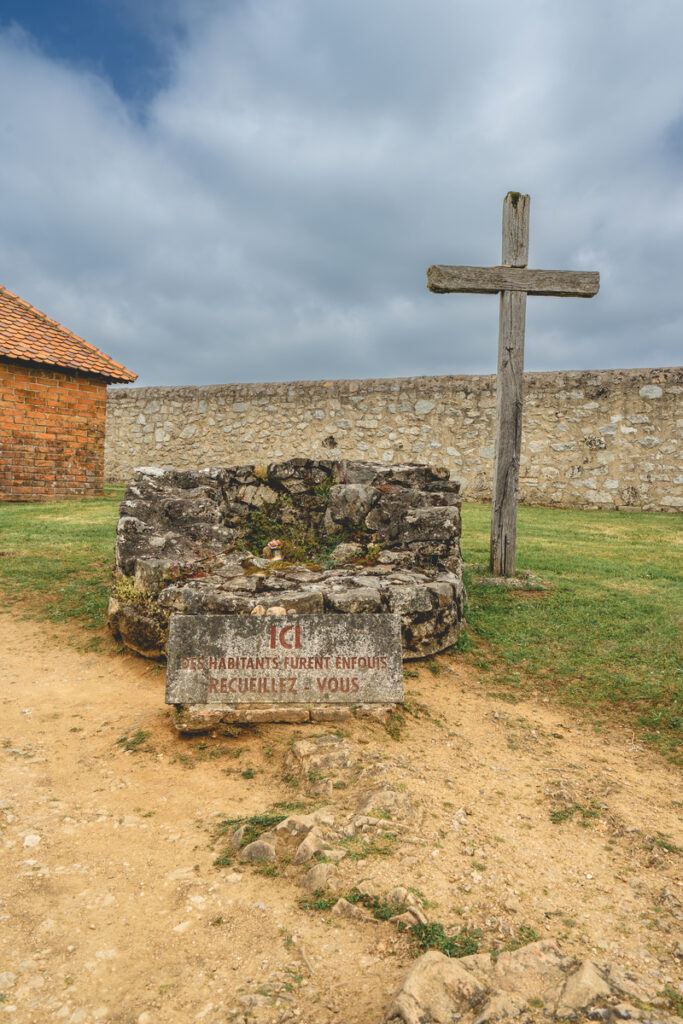What Does It Mean to Count the Cost of Discipleship?
To count the cost of discipleship is to evaluate and embrace the full weight of what it means to follow Jesus. It is not a casual decision but a deliberate, life-altering commitment to align every aspect of your life with the teachings and lordship of Christ. In Luke 14:27-28, Jesus declares, “Whoever does not carry their cross and follow me cannot be my disciple. Suppose one of you wants to build a tower. Won’t you first estimate the cost to see if you have enough money to complete it?” These verses remind us that discipleship requires careful consideration, a willingness to surrender personal desires, and the courage to face potential hardship. Counting the cost involves recognizing that following Christ may lead to sacrifice – whether of comfort, reputation, or even relationships – but it also brings eternal joy and fulfillment in walking with Him (Matthew 16:24-26). It is a call to wholehearted devotion, where no part of life is held back from His transforming power.

Biblical Foundations: The Call to Carry Your Cross
True discipleship begins with surrendering self, relinquishing personal ambitions, desires, and control in favor of Christ’s lordship. In Matthew 16:24, Jesus says, “Whoever wants to be my disciple must deny themselves and take up their cross and follow me.” This self-denial is not about self-loathing or asceticism but rather a profound reorientation of priorities, where Christ becomes the center of all we do. In his seminal work The Cost of Discipleship, Dietrich Bonhoeffer emphasizes that grace is costly because it demands that we give up everything for the sake of following Jesus. Similarly, Bill Hull underscores in The Complete Book of Discipleship that the path of surrender is ongoing – a daily choice to set aside selfish inclinations and embrace the mission of Christ. This sacrificial living reflects the example of Jesus, who humbled Himself to death on the cross (Philippians 2:5-8), and calls His followers to do the same in their contexts.
Bonhoeffer’s Timeless Warning: The Danger of Cheap Grace
Dietrich Bonhoeffer’s The Cost of Discipleship delivers a sobering warning against the allure of what he calls “cheap grace.” This is grace without cost – grace that absolves sin but requires no transformation, no commitment, and no true following of Christ. Bonhoeffer argues that this diluted gospel is dangerous to the Church, producing believers who accept salvation but reject the call to discipleship. He writes, “Cheap grace is the preaching of forgiveness without requiring repentance, baptism without church discipline, communion without confession.” This warning resonates with Paul’s exhortation in Romans 6:1-2, where he asks, “Shall we go on sinning so that grace may increase? By no means! We are those who have died to sin; how can we live in it any longer?”
Bonhoeffer’s insights remain deeply relevant in a culture prioritizing comfort and convenience over sacrifice and obedience. Bill Hull complements this perspective, emphasizing that true grace transforms hearts and lives, compelling believers to embody the kingdom’s values. Jesus Himself warned of the cost in Luke 14:28-33, urging His followers to count the cost of discipleship before committing to Him. This timeless challenge calls Christians to embrace grace that is not cheap, but costly grace that calls us into the radical obedience of following Jesus wherever He leads.
The Life of Dietrich Bonhoeffer: A Testament to Costly Grace
The life of Dietrich Bonhoeffer stands as a living testament to the concept of costly grace. Born into privilege in early 20th-century Germany, Bonhoeffer could have chosen a life of comfort and prestige. Instead, he embraced the call of Christ, which led him to actively resist the rise of Nazism and advocate for a church faithful to the gospel, even in the face of immense persecution. His commitment to truth and justice exemplifies the costly grace he wrote about so passionately in The Cost of Discipleship.
Bonhoeffer’s decision to join the Confessing Church, a movement opposing Hitler’s co-opting of German Christianity, came with a high price. His theology of discipleship – rooted in the teachings of Jesus, such as taking up one’s cross daily (Luke 9:23) – was not merely theoretical; it defined his actions. Bonhoeffer’s involvement in a plot to overthrow Hitler ultimately led to his imprisonment and execution. His last recorded words, spoken before his martyrdom, encapsulate his faith: “This is the end – for me, the beginning of life.”
Bonhoeffer’s life embodies Jesus’ teaching in John 15:13: “Greater love has no one than this: to lay down one’s life for one’s friends.” It also resonates with Paul’s declaration in Philippians 3:8, where he considers all things a loss compared to the surpassing worth of knowing Christ. His legacy challenges believers today to reject complacency and embrace the kind of discipleship that honors Christ with unwavering obedience, regardless of the cost.
Bill Hull’s Practical Approach to Living as a Disciple
Bill Hull, a leading voice in modern discipleship, emphasizes a practical and accessible approach to living as a disciple of Jesus. In his works, such as The Complete Book of Discipleship and The Disciple-Making Pastor, Hull outlines a vision of discipleship that integrates faith into everyday life, making it a continuous journey of transformation rather than a one-time decision. His teachings focus on cultivating habits that align with Jesus’ command to “go and make disciples of all nations” (Matthew 28:19).
Central to Hull’s approach is the idea that discipleship is relational and intentional. He advocates for building a lifestyle that mirrors the early church’s commitment to teaching, fellowship, breaking of bread, and prayer (Acts 2:42). Hull’s discipleship model involves regular engagement with scripture, spiritual disciplines, and accountability in community. He teaches that obedience to Christ’s teachings – not mere knowledge – is the true mark of a disciple, echoing James 1:22: “Do not merely listen to the word, and so deceive yourselves. Do what it says.”
Hull’s practical framework for discipleship includes small group mentoring, one-on-one discipleship, and the intentional reproduction of disciples who can disciple others. By demystifying the process, Hull equips believers to live out their faith authentically in their families, workplaces, and communities. His emphasis on spiritual formation and character development challenges Christians to align their lives with Christ’s priorities and values, embodying the essence of “teaching them to obey everything I have commanded you” (Matthew 28:20). Hull’s approach serves as a roadmap for those seeking to move beyond passive Christianity into a dynamic, disciple-making lifestyle.

The Tension Between Sacrifice and Freedom in Christ
An intriguing paradox marks the Christian life: it is both a call to profound sacrifice and an invitation to unparalleled freedom. Jesus’ words in Matthew 16:24, “If anyone would come after me, let him deny himself and take up his cross and follow me,” underscore the cost of discipleship. Yet, in the same breath, Scripture assures believers of the freedom found in Christ: “For freedom Christ has set us free; stand firm therefore, and do not submit again to a yoke of slavery” (Galatians 5:1). This tension between sacrifice and freedom reflects the profound depth of the gospel.
Sacrifice in the Christian life does not mean abandoning joy or embracing hardship for its own sake. Instead, it involves laying down self-centered pursuits, earthly attachments, and sin, which ultimately enslave the soul. Paradoxically, in this sacrifice, true freedom is found. As Paul writes in Romans 6:22, “But now that you have been set free from sin and have become slaves of God, the fruit you get leads to sanctification and its end, eternal life.” The freedom Christ offers is not a freedom to indulge the flesh but a freedom to walk in righteousness and purpose.
Living in this tension requires believers to trust that the cost of discipleship pales compared to the surpassing worth of knowing Christ (Philippians 3:8). It also calls for continual reliance on the Holy Spirit, who empowers us to live sacrificially while embracing the freedom of grace. This dual reality invites Christians to live boldly, forsaking lesser things for the kingdom’s sake while resting in the abundant life Christ promises in John 10:10.
Practical Steps to Embrace the Cost of Discipleship
Embracing the cost of discipleship requires intentionality, humility, and reliance on God’s grace. Jesus did not hide the reality that following Him would involve sacrifice; He also provided the framework for walking faithfully in this calling. Here are practical steps to embrace this journey, broken down into actionable subsections.
Surrender Daily to God’s Will
The first step in embracing the cost of discipleship is daily surrender. Jesus calls His followers to deny themselves and take up their cross daily (Luke 9:23). This means choosing God’s will over personal desires, even when it feels uncomfortable or countercultural. Through prayer, we can echo Jesus’ words in Gethsemane: “Not my will, but yours be done” (Luke 22:42). Daily surrender acknowledges God’s sovereignty and deepens trust in His plan.
Invest in Intentional Relationships
Discipleship is not a solitary journey. Just as Jesus invested in His twelve disciples, we are called to walk alongside others in intentional relationships. Paul’s exhortation to Timothy to teach others who can pass it on (2 Timothy 2:2) demonstrates the importance of multiplying discipleship. Building relationships that challenge, encourage, and hold us accountable is essential to growing as a follower of Christ.
Cultivate a Heart for Service
True discipleship involves serving others as Christ served. Jesus set the example in John 13:14-15 by washing His disciples’ feet and instructing them to do the same. Embracing service often means sacrificing time, resources, and comfort to meet the needs of others. Acts of service are not just about doing good but about reflecting the love of Christ to the world.
Practice Radical Obedience
Obedience to God’s Word is central to discipleship. James 1:22 urges believers to be “doers of the word, and not hearers only.” Radical obedience involves aligning every area of life – work, family, finances, and relationships – with biblical principles. It also requires courage to act on convictions, even when obedience leads to ridicule or loss.
Endure Hardship with Faith
The cost of discipleship often involves enduring trials and persecution. Paul reminds us in 2 Timothy 3:12 that “all who desire to live a godly life in Christ Jesus will be persecuted.” However, enduring hardship with faith produces perseverance, character, and hope (Romans 5:3-5). Fixing our eyes on Christ allows us to endure, knowing that the ultimate reward far outweighs the temporary cost.
Remain Anchored in the Word
A disciple’s strength comes from remaining rooted in Scripture. Psalm 119:105 describes God’s Word as “a lamp to my feet and a light to my path.” Regular study, meditation, and application of Scripture equip believers to navigate challenges and discern God’s will. Discipleship begins and is sustained by the transforming power of God’s Word.
Pray with Dependence and Expectation
Prayer is the lifeline of a disciple. It fosters intimacy with God and reminds us of our dependence on Him. Philippians 4:6-7 encourages believers to pray in all circumstances, trusting that God’s peace will guard their hearts and minds. Persistent prayer empowers us to embrace the cost of discipleship with courage and faith.
Learning from the Saints: Examples of Costly Discipleship

The call to discipleship has resonated through centuries, inspiring countless individuals to take up their cross and follow Christ, often at significant personal cost. The stories of saints who have walked this path remind us that the cost of discipleship is worth the eternal reward. These examples illuminate the sacrifices and enduring faith displayed by those who counted the cost and deemed Christ worthy.
Dietrich Bonhoeffer: A Life Surrendered to Truth
Dietrich Bonhoeffer stands as a towering example of costly discipleship. His decision to return to Nazi Germany, despite the risk to his life, exemplifies his unwavering commitment to God’s call. Bonhoeffer’s words in The Cost of Discipleship – “When Christ calls a man, He bids him come and die” – were lived out as he ultimately gave his life in resistance to tyranny and in service to God’s truth (John 15:13). His legacy challenges us to prioritize obedience to Christ over personal safety or societal approval.
Perpetua and Felicity: Courage in the Face of Death
Perpetua and her servant Felicity faced persecution under Roman rule in the early church. As they awaited execution for their faith, their unshakable hope in Christ encouraged fellow believers. Perpetua’s refusal to renounce her faith, despite her father’s pleas, reflected her understanding of Jesus’ words: “Whoever loves father or mother more than me is not worthy of me” (Matthew 10:37). Their martyrdom reminds us that discipleship may demand our lives but offers the joy of eternal communion with Christ.
William Wilberforce: Fighting for Justice at Great Cost
William Wilberforce’s discipleship led him to a lifelong battle against the British slave trade. Enduring political opposition, personal health struggles, and social ostracism, he remained steadfast in his mission to honor God by advocating for human dignity. His perseverance reflects Micah 6:8, “to act justly and to love mercy and to walk humbly with your God.” Wilberforce’s costly discipleship transformed society and demonstrated the enduring impact of faith-driven action.
Corrie Ten Boom: Forgiveness in the Shadow of Suffering
During World War II, Corrie Ten Boom and her family sheltered Jews from Nazi persecution, an act that led to their imprisonment in concentration camps. Corrie’s journey of forgiveness, even toward her captors, exemplified costly discipleship. She lived out Jesus’ command to “love your enemies and pray for those who persecute you” (Matthew 5:44). Her story teaches us that discipleship often involves profound sacrifice and the supernatural strength to forgive.
Jim Elliot: Sacrificing Earthly Comforts for Eternal Gains
Jim Elliot, a missionary to Ecuador, gave his life while attempting to bring the gospel to the unreached Huaorani people. His famous declaration, “He is no fool who gives what he cannot keep gaining what he cannot lose,” echoes Jesus’ teaching in Mark 8:35 – “Whoever loses their life for me and the gospel will save it.” Elliot’s sacrifice inspires generations of believers to prioritize God’s kingdom over worldly comforts.
Common Misconceptions About Sacrifice in the Christian Life
Sacrifice in the Christian life is often misunderstood, leading to distorted views of what it truly means to follow Christ. One common misconception is that sacrifice is purely transactional as if giving up something for God will automatically result in earthly blessings or rewards. This perspective misses the heart of biblical sacrifice, rooted in love and obedience to God, not in expecting something in return. As Paul reminds us in Romans 12:1, believers are called to offer their lives as a “living sacrifice, holy and pleasing to God,” which is an act of worship, not a means to manipulate outcomes.
Another misconception is that sacrifice equates to misery or a loss of joy. Some believe that living sacrificially means forgoing all personal happiness or desires. However, Jesus’ teaching in Matthew 16:24-25 reveals a paradox: “Whoever wants to save their life will lose it, but whoever loses their life for me will find it.” True sacrifice leads to greater joy and fulfillment because it aligns us with God’s purposes. The psalmist declares, “In your presence, there is fullness of joy” (Psalm 16:11), reminding us that even in sacrifice, we find more profound satisfaction in Christ.
Lastly, many view sacrifice as an extraordinary call only for pastors, missionaries, or martyrs. This misconception neglects the biblical truth that all believers are called to take up their cross daily (Luke 9:23). Sacrifice is not limited to grand gestures but is expressed in the daily decisions to love others, serve selflessly, and submit to God’s will. Whether in the workplace, at home, or in ministry, every Christian is invited to live sacrificially as a reflection of Christ’s ultimate sacrifice on the cross. We can embrace a more biblical understanding of sacrifice rooted in joy, worship, and obedience by addressing these misconceptions.
The Eternal Perspective: Why the Cost Is Worth It
When faced with the call to discipleship and the sacrifices it demands, focusing solely on what is given up in this life can be tempting. However, Scripture consistently redirects our gaze toward the eternal rewards that far outweigh any earthly cost. Paul’s words in 2 Corinthians 4:17 remind us, “For our light and momentary troubles are achieving for us an eternal glory that far outweighs them all.” The sacrifices we make in obedience to Christ are not meaningless; they are investments in an eternal reality where God’s promises are fully realized.
Jesus Himself emphasized this eternal perspective when He said, “Do not store up for yourselves treasures on earth, where moths and vermin destroy, and where thieves break in and steal. But store up for yourselves treasures in heaven” (Matthew 6:19-20). Following Christ often requires relinquishing earthly comfort, status, or possessions, but these sacrifices pale compared to the joy of knowing Christ and the inheritance that awaits believers in eternity. As Paul declared in Philippians 3:8, “I consider everything a loss because of the surpassing worth of knowing Christ Jesus my Lord.”
The eternal perspective also provides hope and strength in trials and persecution. The writer of Hebrews encourages believers to endure suffering by looking to Jesus, “the pioneer and perfecter of faith” (Hebrews 12:2), who endured the cross for the joy set before Him. Likewise, those who embrace the cost of discipleship can endure present hardships with the confidence that their labor in the Lord is not in vain (1 Corinthians 15:58).
Ultimately, the eternal perspective transforms how we view sacrifice. It shifts our focus from what we lose to what we gain – a relationship with Christ now and forever and the privilege of participating in His redemptive work. The cost of discipleship is significant, but the reward is immeasurable: life with God, joy in His presence, and a share in His eternal glory. Considering eternity, every sacrifice becomes a small price to pay for the surpassing riches of God’s grace in Christ Jesus (Ephesians 2:7).

Living the Call: Are You Ready to Count the Cost?
Discipleship is not a casual endeavor but a radical, life-transforming call that demands everything yet offers infinitely more in return. Jesus’ invitation is clear and uncompromising: “Whoever wants to be my disciple must deny themselves and take up their cross daily and follow me” (Luke 9:23). This is not a call to mere association with Christ but to total surrender. In this life, every decision, relationship, and priority is filtered through the lens of His Lordship.
The cost of discipleship is daunting, but it is also an invitation to experience the fullness of life in Christ. In The Cost of Discipleship, Bonhoeffer poignantly states, “When Christ calls a man, he bids him come and die.” This death to self is not the end but the beginning of a new life marked by purpose, joy, and intimacy with God. Similarly, Bill Hull reminds us that discipleship is not an achievement but a lifestyle – a daily commitment to live as Christ’s ambassadors in a world desperately in need of His hope.
The question is not whether discipleship is worth the cost – it undeniably is. The question is whether you are ready to count the cost and embrace the call. Scripture assures us that God provides the strength and grace needed for this journey. Philippians 4:13 declares, “I can do all this through him who gives me strength.” Trusting in His sufficiency, we can step forward in faith, knowing that God sees every sacrifice and will bear eternal fruit.
Living the call requires intentionality, courage, and perseverance. It is a path filled with challenges, but it is also the only path that leads to the abundant life Jesus promised (John 10:10). Are you ready to take up your cross, follow Him, and participate in His redemptive mission? The journey will not be easy, but the reward – a life fully aligned with God’s purposes and an eternity in His presence – makes every cost worth it. As you consider this call, remember Jesus’ words in Matthew 16:25: “For whoever wants to save their life will lose it, but whoever loses their life for me will find it.” Will you choose to find your life in Him?



